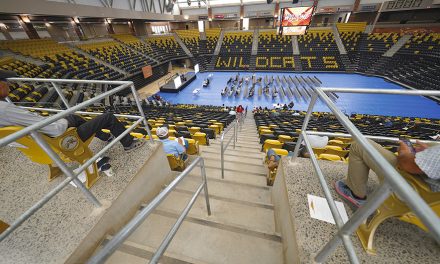
What to do with $58M?

$100 bills: Money illustration.
Lawmakers toss Ramah settlement bills back to Naabik’íyáti’
WINDOW ROCK
In 1988 Ramah Chapter fiscal officer Earla Begay found that the federal government had been “shortchanging” the Navajo Nation.
With her discovery she went before her superiors and a class action lawsuit ensued. The lawsuit was filed against the U.S. Department of Interior for failure to pay full contract support costs to tribes and tribal organizations contracting to run the Bureau of Indian Affairs programs through the Indian Self-Determination and Education Act of 1975.
This case, known as Navajo Ramah Chapter v. Jewell, was settled for $58 million going to the Navajo Nation, all thanks to Begay. And during the first day of Navajo Nation Council spring session, she was awarded a plaque for her diligence nearly 30 years ago.
“I discovered they were shortchanging us,” said Begay. “Even though we hadn’t gotten the money, they assumed we got the money … because of that I discovered the error. I approached my supervisor and he told me, ‘Go ahead and file a lawsuit.’”
Now the question regarding the $58 million is what should it go toward? During the Council session two different bills came before the lawmakers and were tabled and directed back to the Naabik’íyáti’ Committee.
The first bill (0042-17) intended to deposit the money into the Síhasin Fund. It would be used for police substations needed in Piñon, Pueblo Pintado, Klagetoh, Kaibeto, Red Mesa and Cameron costing up to $28 million.
Another $15 million would go to Navajo Technical University to implement a “Navajo Nationwide communications interoperability system.”
“The intent is to serve those areas that don’t have nearby police presence,” said sponsor of the bill Leonard Tsosie (Littlewater/Pueblo Pintado/Torreon/Whitehorse Lake/ Baca/Prewitt/Casamero Lake/Ojo Encino/Counselor). “We are trying to look at response time. This is a start.”
To read the full article, pick up your copy of the Navajo Times at your nearest newsstand Thursday mornings!
Are you a digital subscriber? Read the most recent three weeks of stories by logging in to your online account.







 Highway 264,
Highway 264, I-40, WB @ Winslow
I-40, WB @ Winslow